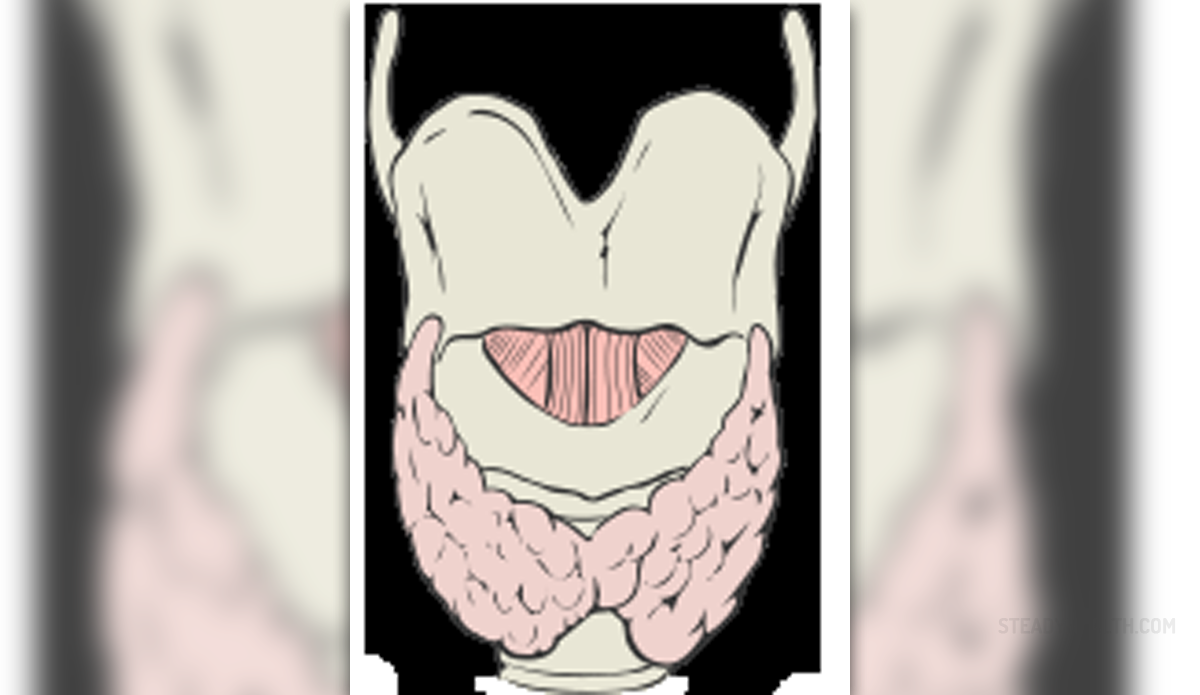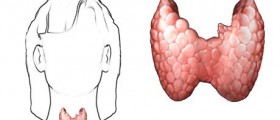
Thyroid gland is one of the most important glands in the human body. This gland regulates many of the metabolic processes and helps to determine the ratio in which the body will be sensitive to other hormones. Thyroid gland is shaped like a butterfly and situated in the neck, just below the Adam’s apple. Thyroid gland needs iodine from food in order to work normally and to produce its hormones. The hormones produced by the thyroid gland are dependent on the thyroid stimulating hormone, produced by the pituitary gland. This hormone stimulates the thyroid gland to secrete thyroxine (T4) and triiodothyronine (T3), which are crucial for many bodily processes.
Functions of the thyroid gland
Hormones produced by the thyroid gland affect every part of the human body. These hormones primarily affect the basal metabolic rate, which is the amount of energy expanded while the body is at rest in a neutral temperature. This is the energy needed to sustain the normal functioning of the organs, including the brain, heart, lungs, kidneys, liver, intestines, muscles and skin. Thyroid hormones are also involved in protein synthesis, and they work together with growth hormone to regulate the long bone growth. These hormones regulate the metabolism of protein, fat and carbohydrates.
Effects of thyroid gland disorders
Two main thyroid gland disorders are hyperthyroidism and hypothyroidism. Both of the conditions are diagnosed based on the symptoms and on the measurement of hormonal levels in the blood.
Hyperthyroidism is a medical condition that occurs whenever thyroid gland becomes overproductive and creates too much of thyroid hormones. Signs and symptoms of this disorder may vary depending on the amount of thyroid hormones in the blood. Typical symptoms include extreme irritability, nervousness, anxiety, increased heart rate and increased perspiration, weight loss, very light menstrual periods, and difficulty sleeping. The symptoms occur because the metabolic rate of the body increases, making different body systems and every function to speed up.
Hypothyroidism is described as a deficiency of thyroid hormone, and it typically occurs because of the iodine deficiency. However, this disorder is also associated with abnormal functioning of the pituitary gland, which stimulates the production of the thyroid gland. Symptoms of hypothyroidism usually include poor muscle tone and fatigue, accompanied with irregular periods and fertility problems. These patients will typically be very sensitive to cold; they will have elevated serum cholesterol levels and may suffer from constipation, depression, muscle cramps and joint pain. Dry skin, weight gain and slow speech are indicative of a later phase of the disease. In some cases patients may develop a goiter, which is a swelling in the thyroid gland that manifests as a swollen neck.

















Your thoughts on this
Loading...